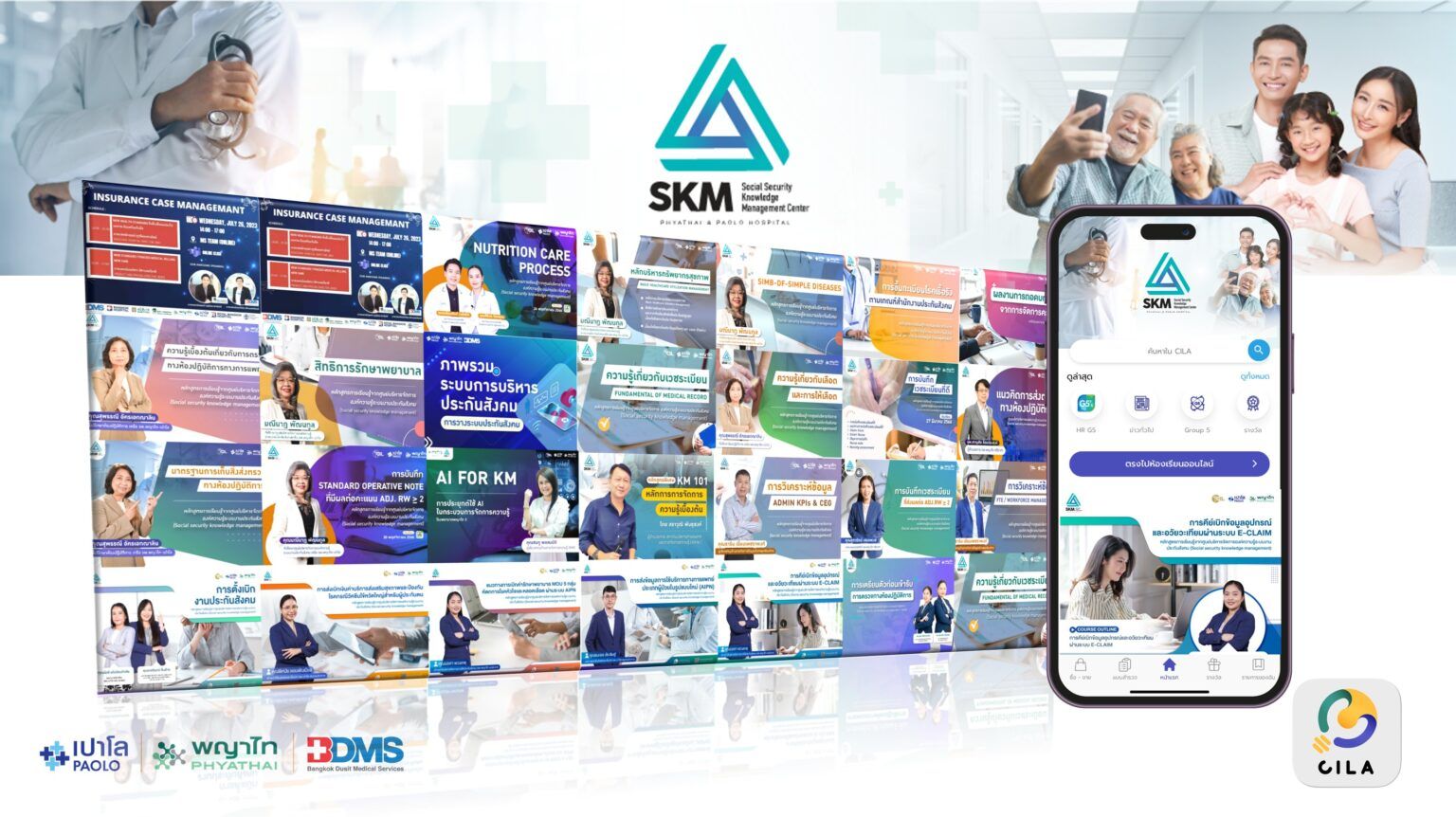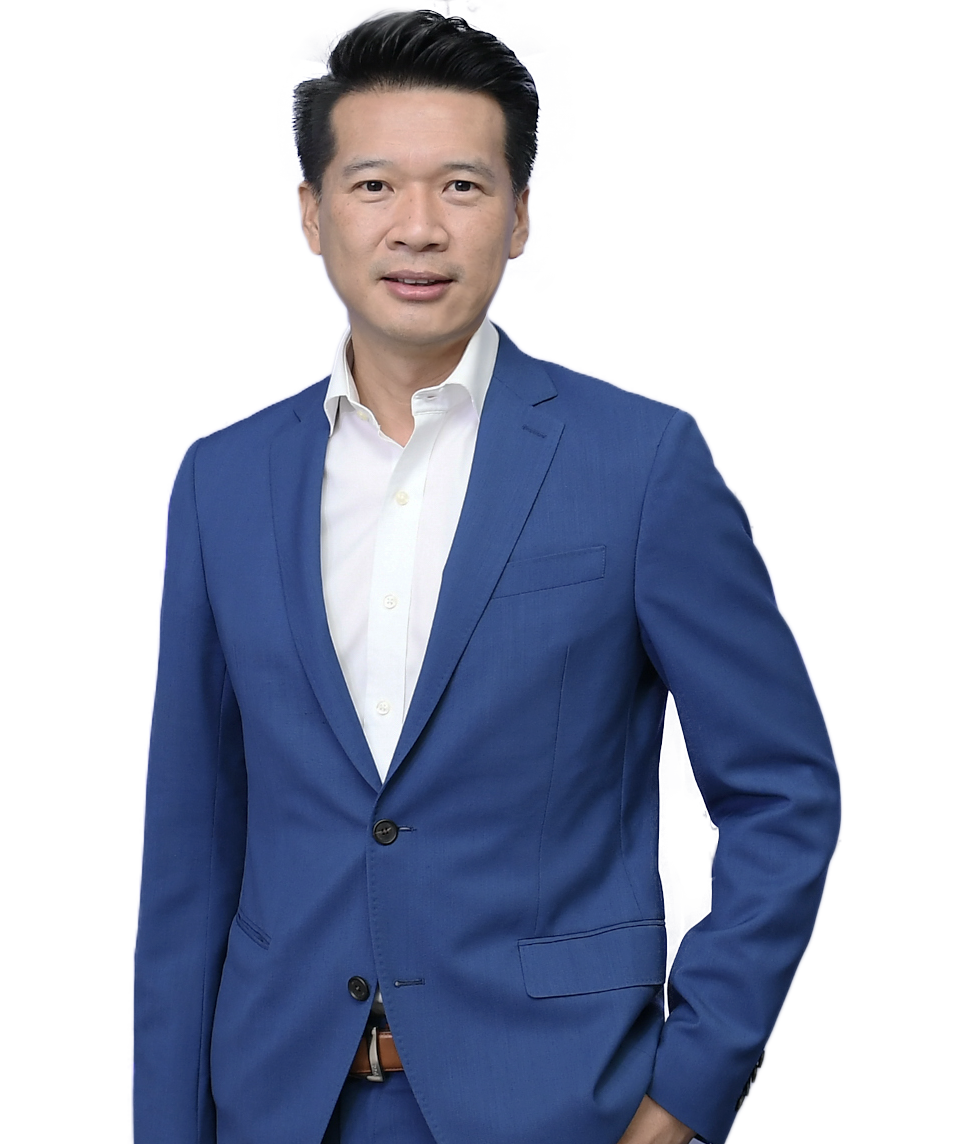From ideas to impact: Phyathai–Paolo Hospital Group’s innovation journey
)
From the Phyathai-Paolo Innovation Lab (PIL), to the CILA learning platform and the Health Up mobile app, the group is building a thriving innovation culture. Executive Director of Sustainable Commerce and Exponential Learning, Niruth Sripawatakul, shares how.
|
|
Building a healthcare organisation at the forefront of digital transformation, where innovation is a way of life – this is the mission of Mr Niruth Sripawatakul, Executive Director of Sustainable Commerce and Exponential Learning, Phyathai – Paolo Hospital Group. The group currently operates a total of 13 hospitals (eight under the Phyathai brand, and five under Paolo) across Thailand, with more than 10,000 staff and 2,000 doctors. Mr Niruth’s responsibilities include identifying new business opportunities, technologies and capabilities in the fast-evolving healthcare landscape. Central to this is fostering a culture of innovation across every level of the organisation. |
To this end, the Phyathai-Paolo Innovation Lab (PIL) was established in 2019, with the aim of bridging the operations and IT teams to translate ideas into impactful solutions.
“We wanted to build an ecosystem that helps increase awareness amongst our staff about new technologies, changing consumer behaviours, our competition, and how we should adapt to meet new demands,” said Mr Niruth.
PIL acts as a central hub for budding innovators in the organisation, offering training in design thinking, business pitching, and more. The PIL team also guides innovators end-to-end from idea to prototype to product, and coordinates innovation activities amongst units to ensure alignment and synergy.
“We are looking at holistic, long-term digital strategy and implementation,” said Mr Niruth. “In the past, departments developed their own solutions – but we can achieve bigger impact and cost savings by bringing these efforts together.”

PIL now oversees a group-wide development road map, collating project requirements from all departments and prioritising them based on impact and readiness of technologies. Universities and startups are brought in to co-develop certain prototypes or proofs-of-concept.
So far, innovative ideas from Phyathai-Paolo’s clinicians and staff have led to the commercialisation of nearly 70 products. This is on top of service innovation ideas that have improved patient experience and cut waiting times. For its efforts, it received the Outstanding Innovative Organization Award from Thailand’s National Innovation Agency in 2022 and 2024.
Knowledge Management through CILA
Complementing PIL is the Center of Interactive Learning Academy (CILA), a one-stop knowledge and learning portal for Phyathai-Paolo staff.
“We have plenty of knowledge in our organisation, much of which is valuable staff knowledge accumulated through years of real-world experience. How can we extract this knowledge, digitise it, and make it convenient for staff to access? This was the inspiration behind CILA,” shared Mr Niruth.
As of August 2025, CILA hosts almost 900 courses spanning clinical, non-clinical, and self-development topics – facilitating continuous learning by staff at their own pace, and knowledge exchange between colleagues. The platform is also updated daily with the latest industry news and developments.

“CILA is not only a knowledge platform, but a transformation tool,” Mr Niruth highlighted. “Before we transform our organisation or invest in technology, we have to first transform our people – raising awareness and opening minds so they are ready to embrace change.”
Seamless data flows through HIS, EMR, and mobile app
Phyathai-Paolo’s digital transformation thus far is underpinned by a solid data infrastructure. An integrated Hospital Information System (HIS) and Electronic Medical Record (EMR) system enables smooth data flows across the group, with 100% coverage in outpatient departments and 80% in inpatient wards (set to reach 100% by end-2025).
In 2021, the group launched its Health Up mobile application, which allows patients to book appointments, check queue status, access reports, make payment, and more. The app has since reached 750,000 downloads, with around 10,000 daily users. Meanwhile, its telehealth platform is witnessing a healthy 20% growth in usage year-on-year, with strong interest from chronic disease patients requiring regular follow-ups and medications.

Critical to the implementation of these tools is a detailed, year-long standardisation of operational processes across all 13 hospitals – from lab codes to payment workflows. Though time-consuming, this step was critical to success and has led to clear improvements in patient experience and staff efficiency.
For example, “in the past, accountants often had to work overtime, sometimes until midnight, to close transactions,” Mr Niruth said. “With the new system, they now finish on time by 6 p.m.”
Building an innovation culture that lasts
It is one thing to build an innovative culture, and another to sustain it.
Change management is an ever-ongoing endeavour, Mr Niruth noted, as the group continually introduces new technologies or enhancements to keep up with the pace of change.
“Every hospital can buy technology – but to become a truly innovative, digital organisation, you need to get full buy-in from your staff. They need to fully appreciate the value of these tools, so they can become your front-line ambassadors to promote these to the patients.”
His team actively manages change adoption through roadshows at each individual hospital, feedback sessions, round-the-clock technical support, and training videos on CILA.
With AI technology advancing rapidly, the hospital group is offering a range of AI courses tailored to different roles – such as AI for doctors, AI for accountants, and AI for marketing – to build awareness and inspire practical use cases.
“These staff are our AI pioneers. By sharing their successes, best practices and lessons, they encourage others in the organisation to follow suit. This is how we are looking to continually drive transformation with technology.”
“Of course, as new, relevant technologies emerge – say 6G or next-gen AI – we will stay ready to adapt, develop our skillsets and ensure we evolve with the healthcare value chain.”


 Mr Niruth Sripawatakul
Mr Niruth Sripawatakul